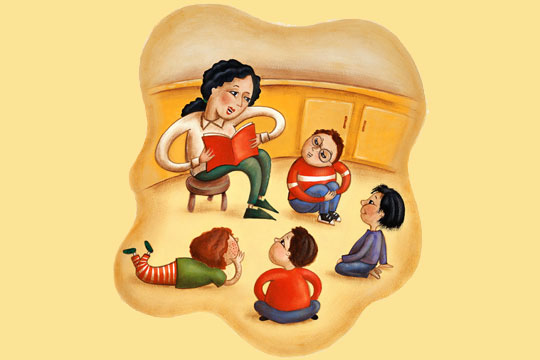
“In his proclamation of the Kingdom, Jesus seeks, encounters, and welcomes people in their concrete life situations.”
Directory for Catechesis #198
While the COVID-19 pandemic is not over, many states have seen the easing of restrictions around larger gatherings, and there has been an increasing sense that life is returning to some sense of normalcy. This fall, parishes and schools will find themselves welcoming students back to class after a much-needed summer of rest and relaxation. Many parishes will welcome children back to in-person classes, some programs will meet virtually, and still others will continue with a hybrid approach that combines in-person experiences with virtual gatherings. However, recognizing that children and their families have different comfort levels when it comes to in-person gatherings, it is important to consider how to accompany people during this transition time. Here are a few suggestions:
- Before the first gathering, reach out to children and families with a hand-written note or letter welcoming them to class. Tell them that you are excited to see them and that you have been praying for them. In this note, it is important to inform families of any safety protocols or expectations that are in place to reassure and address any concerns that they may have.
- Before the first session, cast a critical eye on the learning environment. The room must not only provide a prayerful and comfortable environment, but now more than ever, a safe one as well. Some students may feel scared, anxious, or overwhelmed; for them, a safe environment is a welcoming one. Questions to consider include: Do you have a prayer space in your classroom? How do you want to invite children to pray with all that has transpired as they gather together again? How might you accommodate students who still need to social distance if class is in-person? How can the space “speak” to those who might be participating online?
- If a parent or family night has not been a regular part of the kick-off to the year, consider incorporating an orientation into the program this year. This provides an opportunity to greet children and their families personally and to have some social time to ease the transition back to class. Address any concerns that parents or students might have, including safety and sanitization, protocol issues, and safety measures. This orientation will also allow families to see the learning space and to ask questions.
- During the first session, acknowledge the difficulties we have all faced during the past year and a half. Before jumping into any content for the night, set the stage for new learning by providing a space for prayer and conversation. Invite the participants to share their experiences, with questions such as: How do you feel about being back to class? What has been the most difficult aspect of this time? How has God been a part of this experience? Close this segment with intercessory prayer.
- It is hard to know the long-term effects of the pandemic at this time, but research tells us that young people are showing increased stress. Consider regularly incorporating contemplative prayer and meditation as tools to support spiritual, emotional, physical, and mental health.
- For the first two or three sessions, build a rapport with children by providing some simple experiences to engage their imaginations rather than simply diving into deep content. Many students missed arts and theater classes during the pandemic, so music, art lessons, and craft projects can be important tools to engage participants and provide a bridge into new learning or the deepening of prior content.
As you think about the upcoming year, what other insights, strategies, and tips do you have to make this the best year ever for your students?





Thank you so much. Great insight!
This is really helpful.
Thanks again!